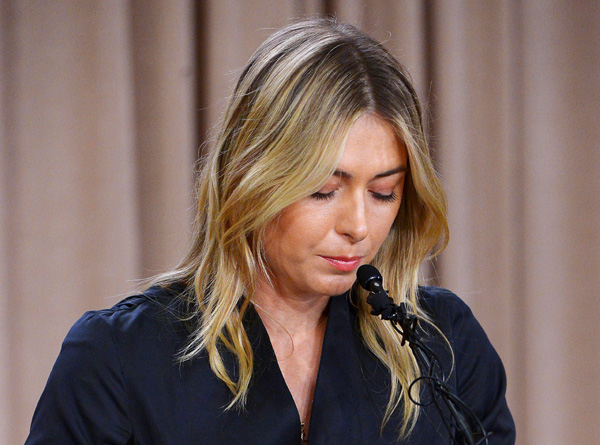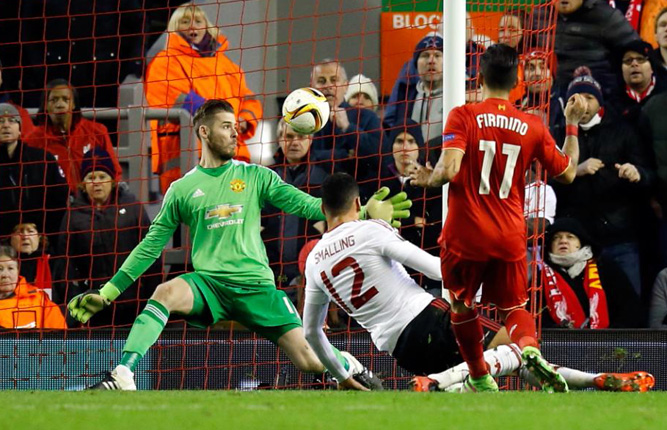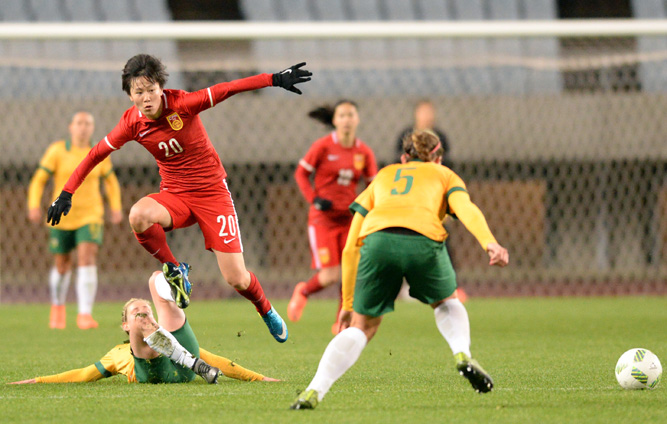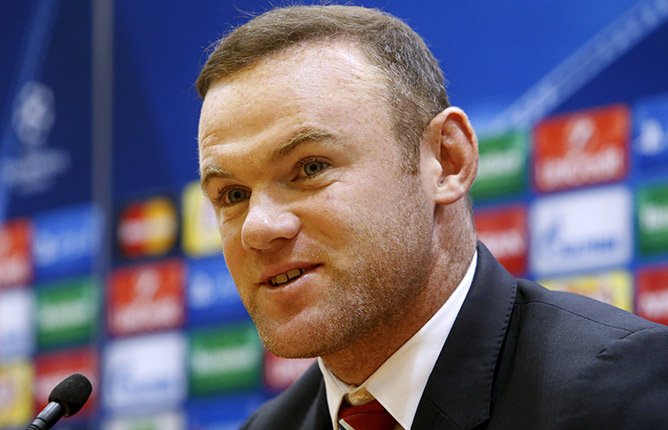Racket sponsor backs Sharapova despite failed drug test
(Agencies) Updated: 2016-03-11 09:24Maria Sharapova's racket supplier became the first main sponsor to publicly back the five-time Grand Slam champion after she admitted to failing a doping test.
|
 |
|
Maria Sharapova speaks to the media announcing a failed drug test after the Australian Open during a press conference today at The LA Hotel Downtown. [Photo/Agencies] |
Austria-based company Head announced Thursday it was planning to extend its sponsorship deal, three days after Sharapova revealed her use of the banned substance meldonium.
Head CEO Johan Eliasch said Sharapova has made "a manifest error" by her continued use of the drug after it was banned, but added there was no "evidence of any intent by Maria of enhancing her performance or trying to gain an unfair advantage."
Eliasch said his brand, which started sponsoring Sharapova in 2011, "is proud to stand behind Maria, now and into the future and we intend to extend her contract. We look forward to working with her and to announcing new sponsorships."
Several other brands, including sports gear giant Nike, watch maker TAG Heuer, and sports car company Porsche, were quick to suspend their support of the world's highest-earning female athlete after her announcement Monday that she failed the drug test at the Australian Open in January, days after the substance was banned.
A former No. 1 for a total of 21 weeks, Sharapova earned an estimated $29.5 million last year alone, mostly off the court. Sharapova has 35 career singles titles and more than $36 million in career prize winnings.
Sharapova said she has taken meldonium for 10 years for various health issues and that she neglected to click on a link in a late December email to check the new list of banned substances. She faces a lengthy ban, which could prevent her from competing for Russia at the Olympics in Rio de Janeiro.
"She has and still is dealing with the medical conditions she described," Eliasch said. "Prior to 2016, we believe that Maria has never throughout her career been taking any WADA banned substances or any other illegal substances."
Eliasch said Sharapova was taking meldonium in such low doses that the drug couldn't possibly have had a stimulating effect on her performance, and that "we further conclude this falls into the category of 'honest' mistakes."
According to Eliasch, it "is common ground within the scientific community" that for meldonium to provide "any relevant performance enhancing effect it has to be taken in daily dosages in excess of 1,000 to 2,000mg."
The dosages Sharapova had been taken "were significantly short of performance enhancing levels," according to the CEO.
"The honesty and courage she displayed in announcing and acknowledging her mistake was admirable," Eliasch said. "Maria may have made a mistake, but she has earned the benefit of the doubt and we are extending it to her."








